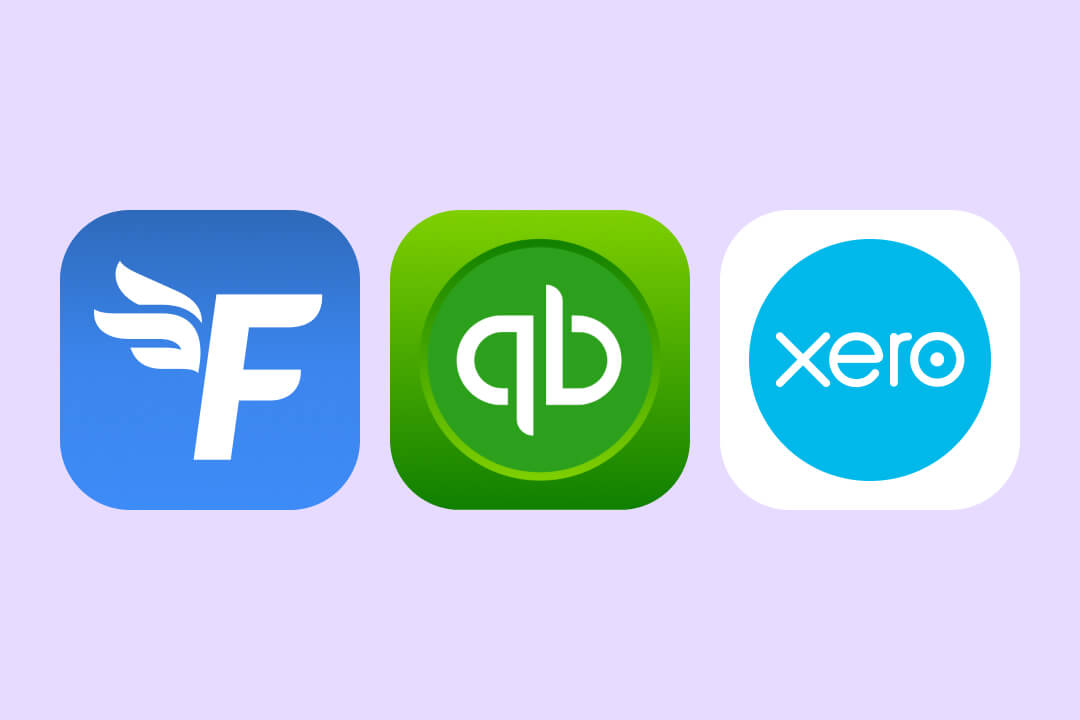
Business
A round-up of accounting software options for Starling business customers
24th May 2024
7th August 2023
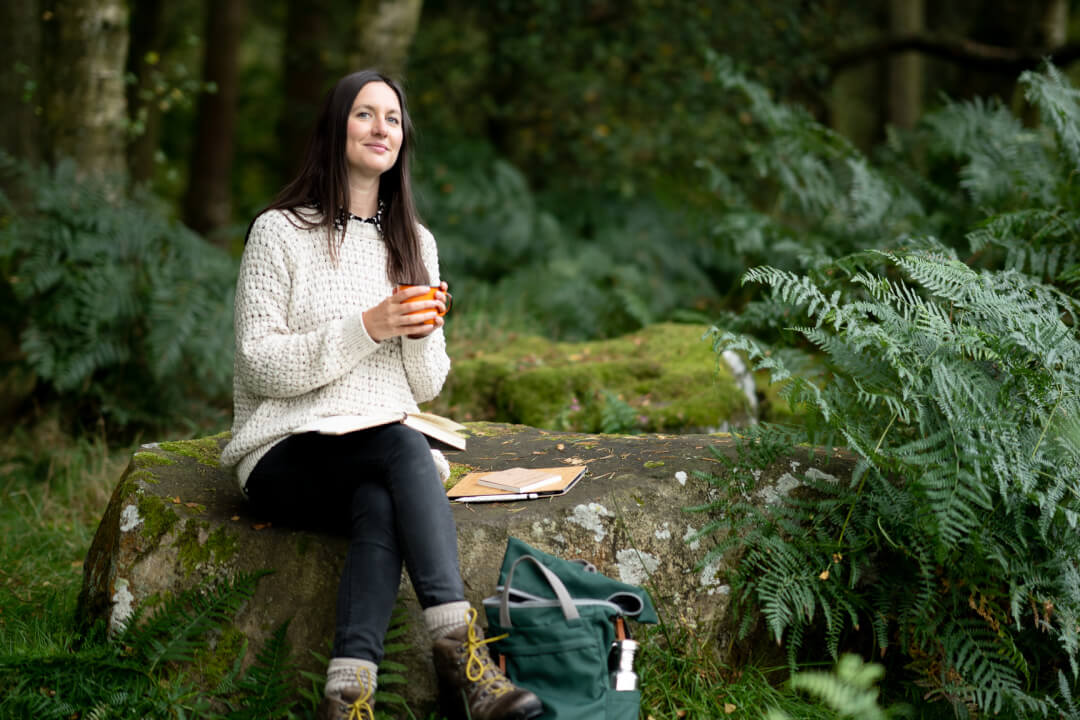
“I’m a bit allergic to offices,” says Charlotte Holroyd, founder of the brand strategy and design business Creative Wilderness. “I’d love to have a woodland that could become a co-working space.”
In some ways, Charlotte already has just that. She works with clients in forests and fields through outdoor workshops, which are a key part of her process in developing a brand’s identity. Charlotte (pictured above, photo credit: Jodie Thackray, Photo + Flourish) is a Starling business customer.
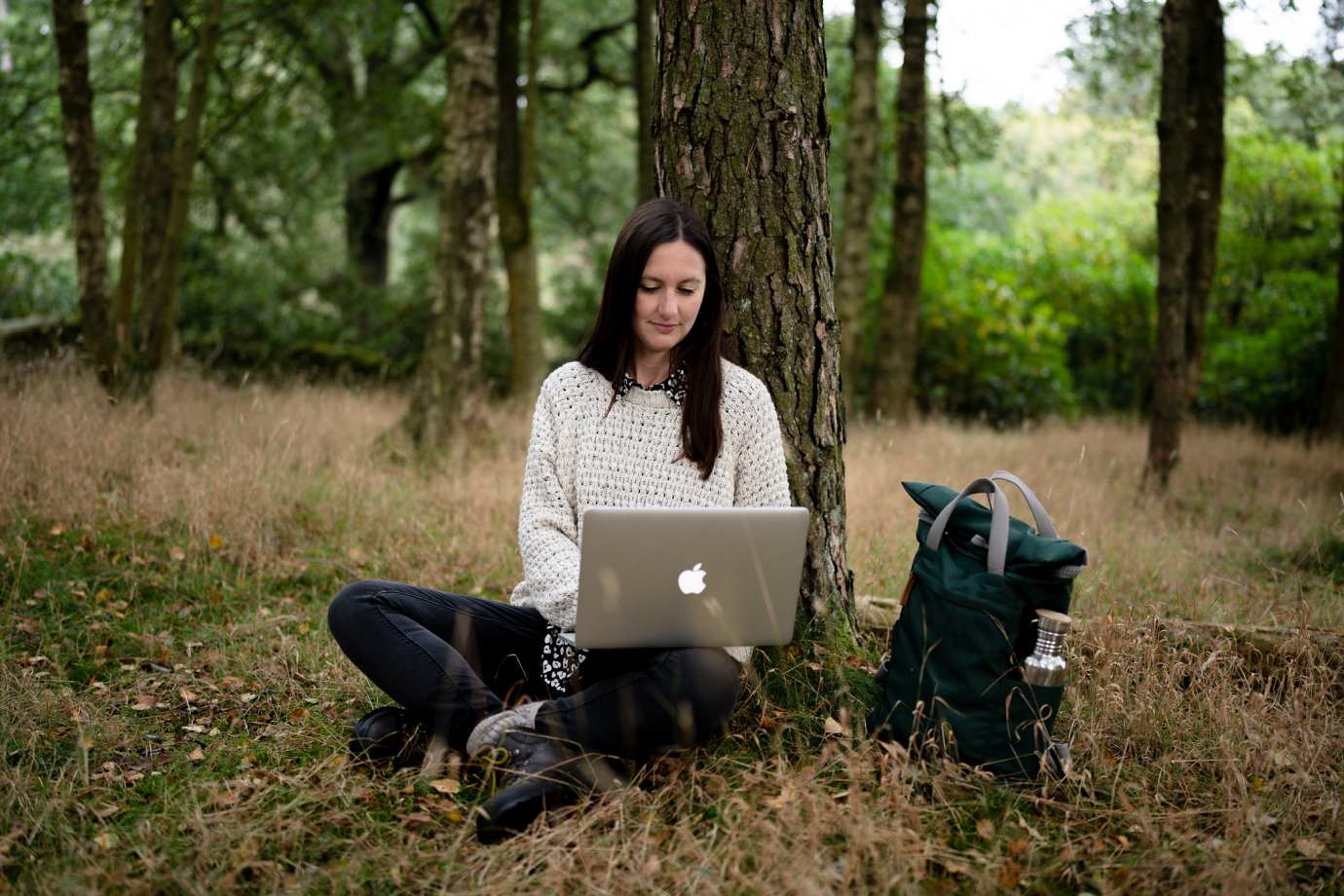
“When I first work with clients, I get them to forage for natural items that represent their brand or ask them to bring me something they’re drawn to. It’s really insightful. For example, someone might choose a straight stick from a beech tree and then talk about the way they want their messaging to be straight to the point.”
In the last five years, Charlotte has developed and delivered branding for more than 100 ethical and sustainable companies, most of which she has branded from scratch.
When it comes to running Creative Wilderness, Charlotte aims to take a holistic approach. “Rest is just as important as work, especially because if I don’t take time out, I’ll start resenting my work and it will show,” she says.
“I don’t have my emails or social media on my phone, I take regular holidays and I give myself creative days. For example, I go for a big hike followed by a wild swim and then do some writing or journaling in a notebook. When we have space, creativity thrives.”
Charlotte usually spends four to eight weeks working with each sustainable brand, with a few design days for smaller projects in between. “Instead of working all hours and trying to grow really quickly, I try to follow an older way of doing things, as if I were someone spending time whittling down a piece of wood into an instrument - there’s a real beauty in that.”
Before becoming a graphic designer and brand strategist, Charlotte was a musician. “I played the saxophone and bass guitar and trained in Liverpool at the college Paul McCartney set up,” she says.
“As a musician I had to create gig posters so I taught myself how to design things. In 2006, I got a job at a newspaper in the advert design section and then went on to work for an advertising agency.”
When asked why she didn’t continue with music, she replies: “The people who went on to do music full time after graduating were obsessed. I loved music but I wasn’t obsessed.” So what is her obsession? “My campervan - she’s bright orange and she’s called Autumn.”
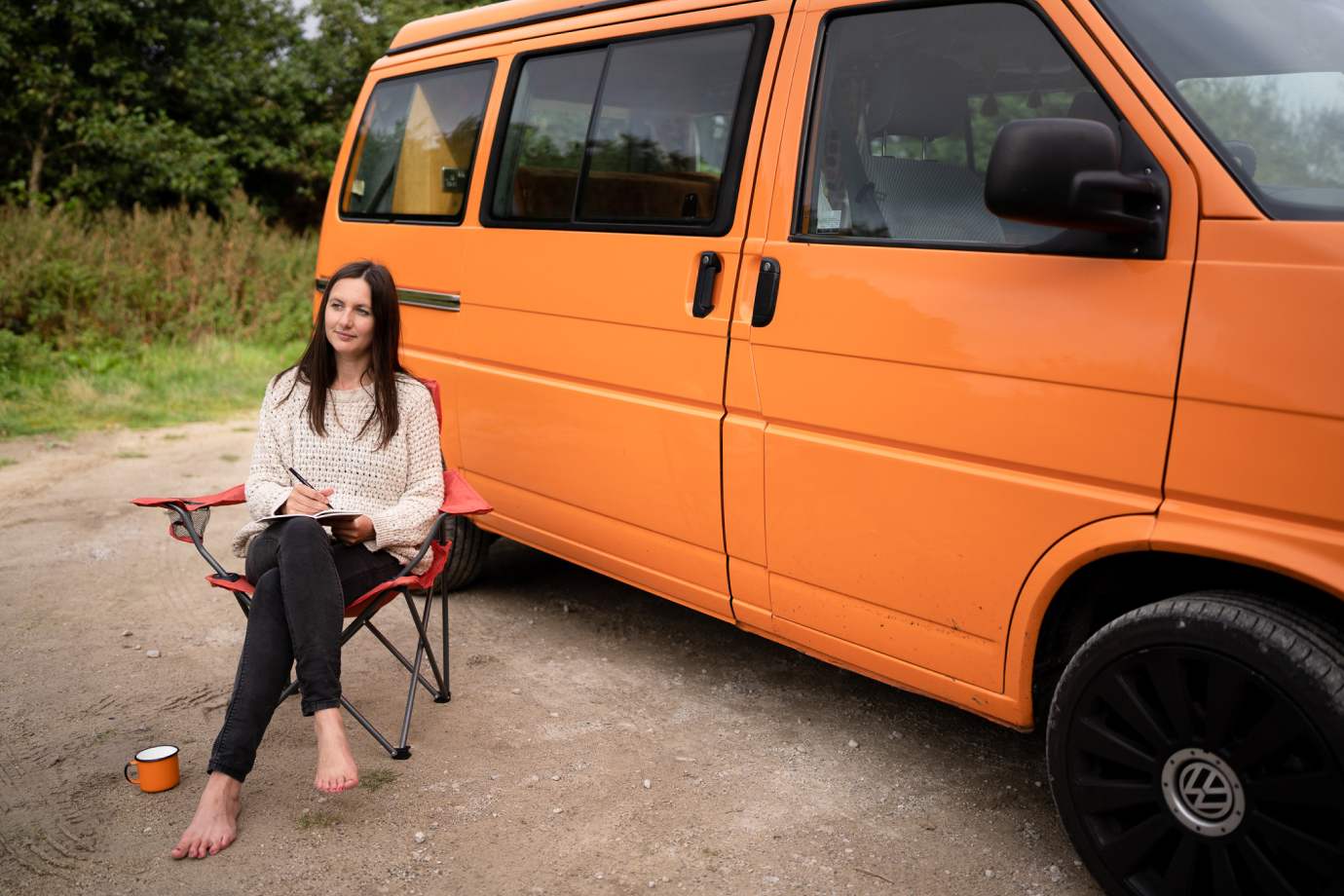
Her campervan, which she bought in early 2020, was the first thing she spent money on for herself after setting up Creative Wilderness in 2017. “I’ve wanted one from the age of six.”
So far, she’s journeyed up to the Cairngorms in Scotland, down to Pembrokeshire and over to the Peak District. Charlotte is based in Manchester. “I really appreciate what we’ve got so close to home.”
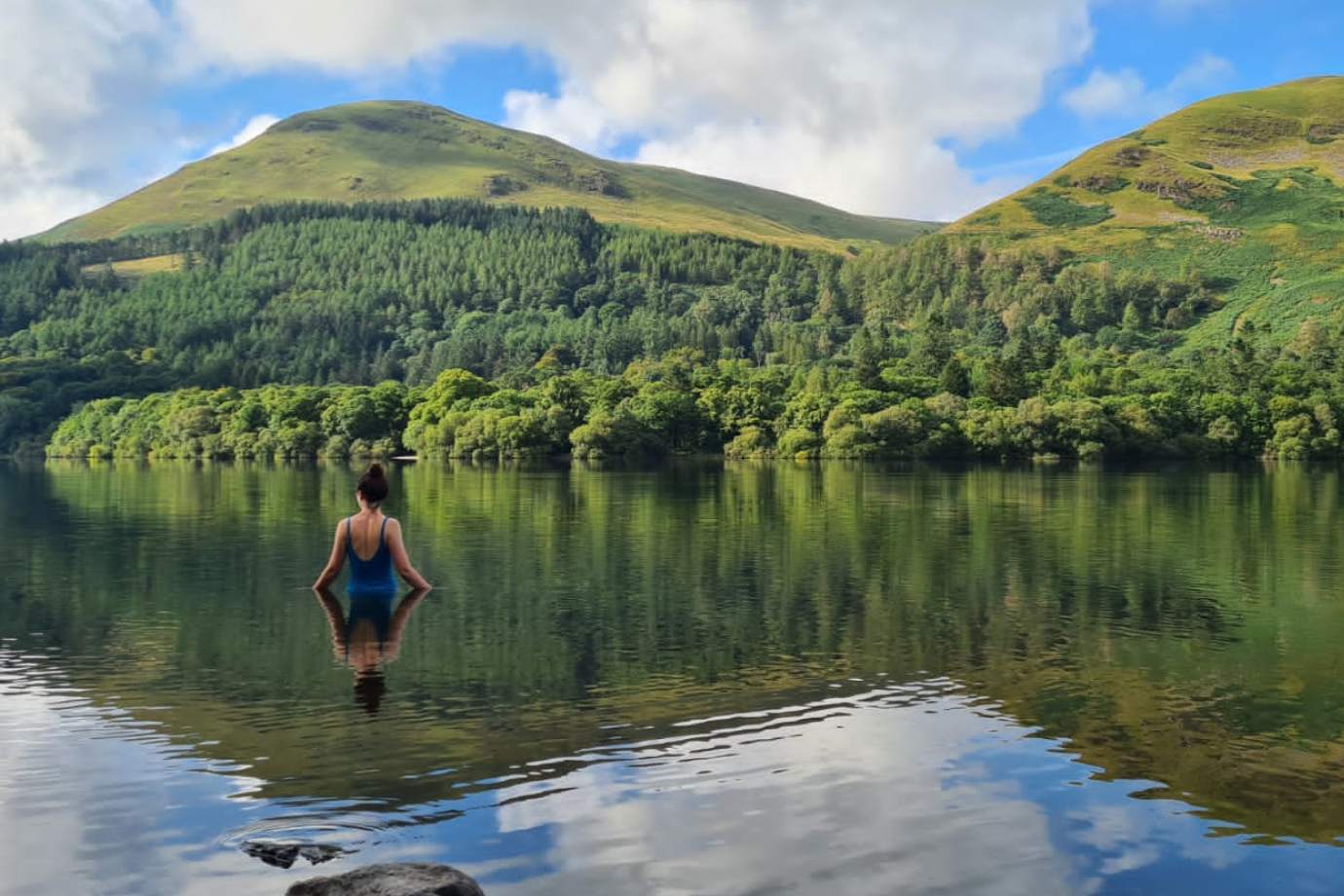
The inspiration for Creative Wilderness was the book The 4-Hour Work-Week by Tim Ferris. “I was working as a freelance graphic designer at the time and I loved the freedom of it and the ability to work on different projects, but I wanted to be fully in control. Freelancing was the halfway step.”
Unlike her freelance work, which usually involved one-off logos or elements of packaging, her work through Creative Wilderness encompasses all elements of creating a company’s brand identity, including strategy development.
One example of a business she’s helped develop is Microbz, a company that harvests microbes from the soil to turn into probiotics, live microorganisms often consumed as health supplements. “I ran an outdoor Brand Roots Workshop for them in 2022. We worked together outside to solve their business frustrations and explore their future vision. As part of the workshop, I led a guided meditation by a big ash tree and they told me that it really helped them find their purpose again.”
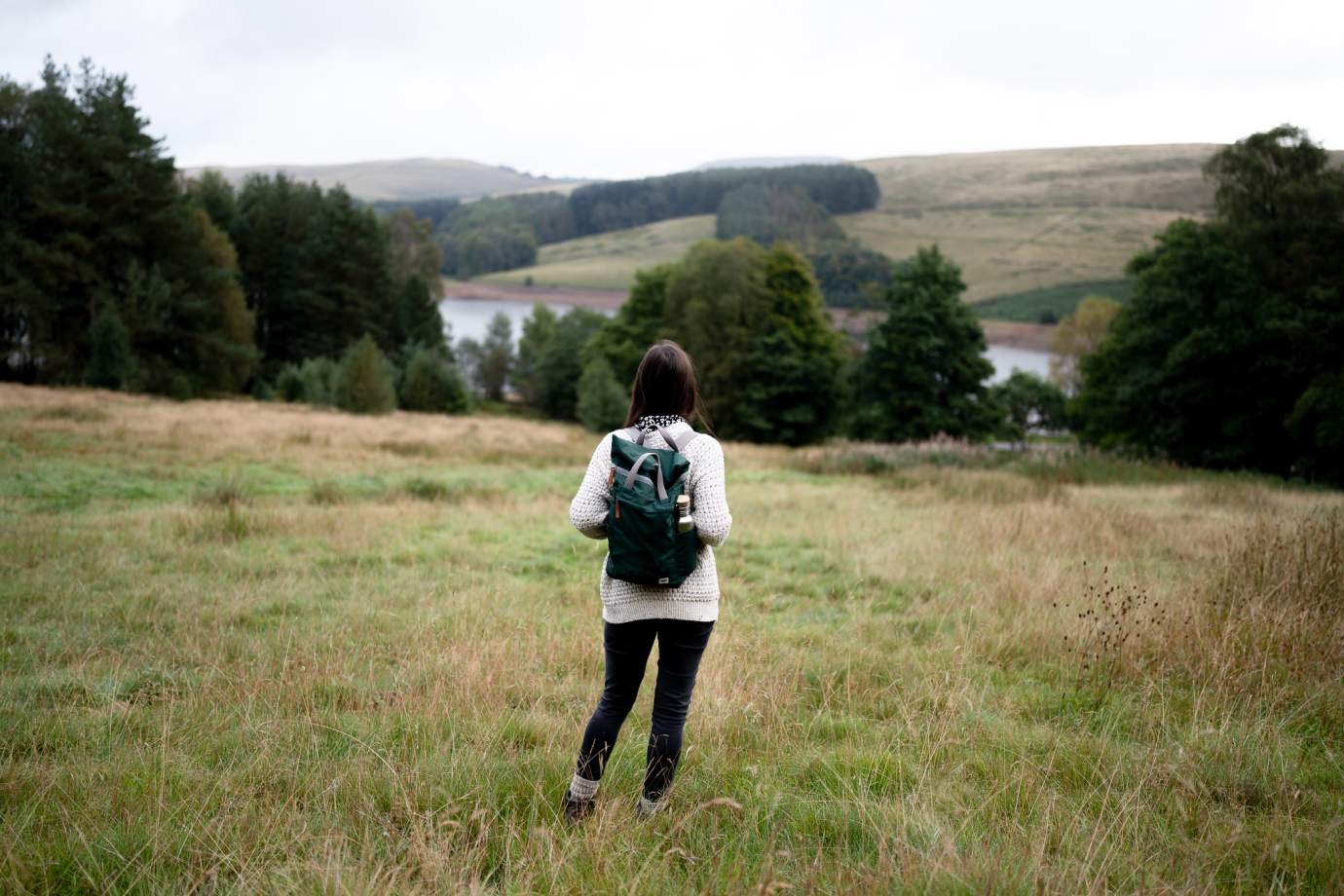
“Afterwards, I stayed in my campervan and I just felt very blessed that businesses allowed me to work with them out in nature, and that I didn’t have to rush back to anywhere. I just sat with my cup of chai and looked out of my campervan window at the evening light peeking through the surrounding trees.”
This is the moment she speaks of when asked about the definition of success. “Success for me is freedom, contentment and fulfilment.”

Business
24th May 2024
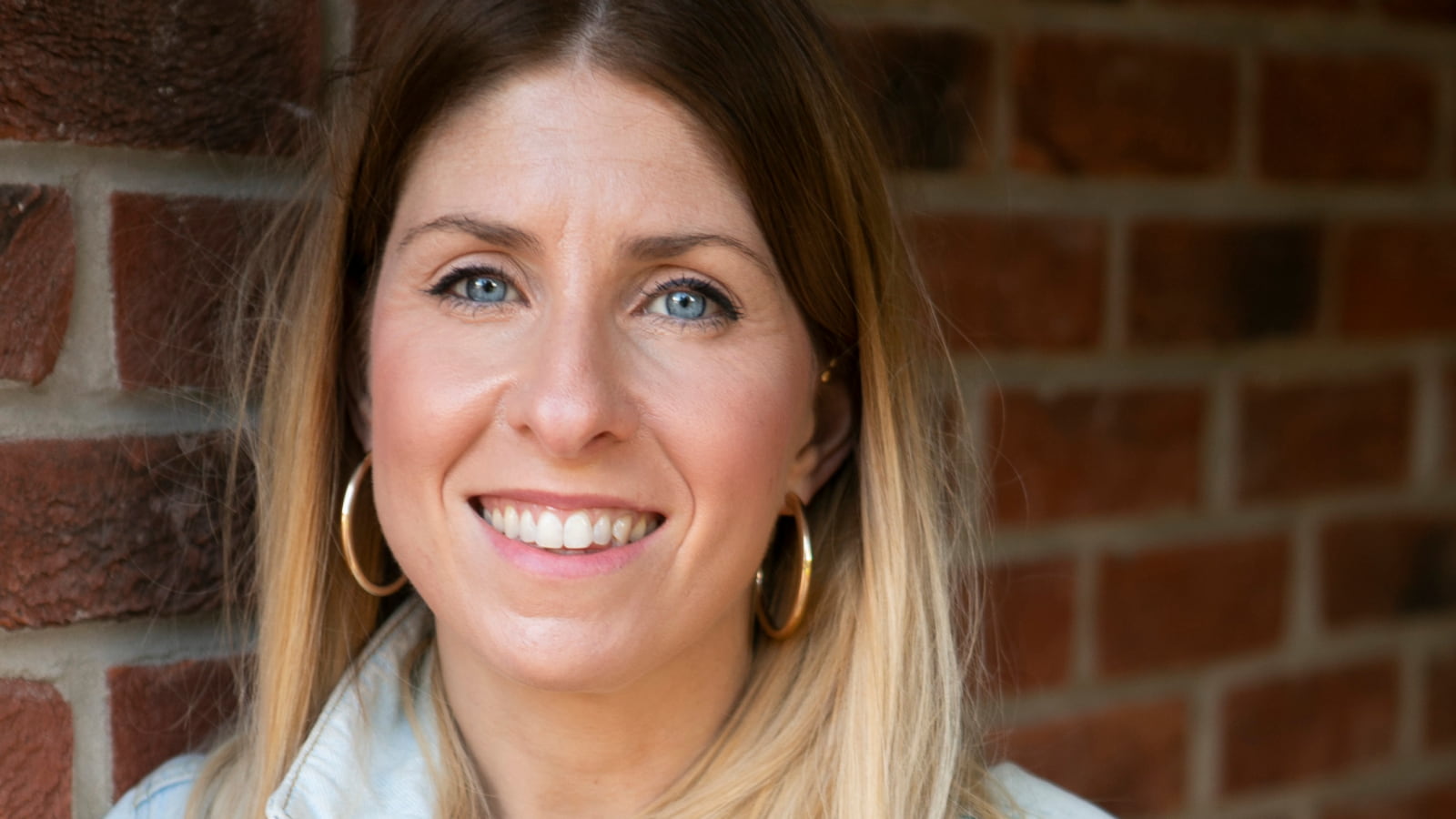
Business
8th February 2024
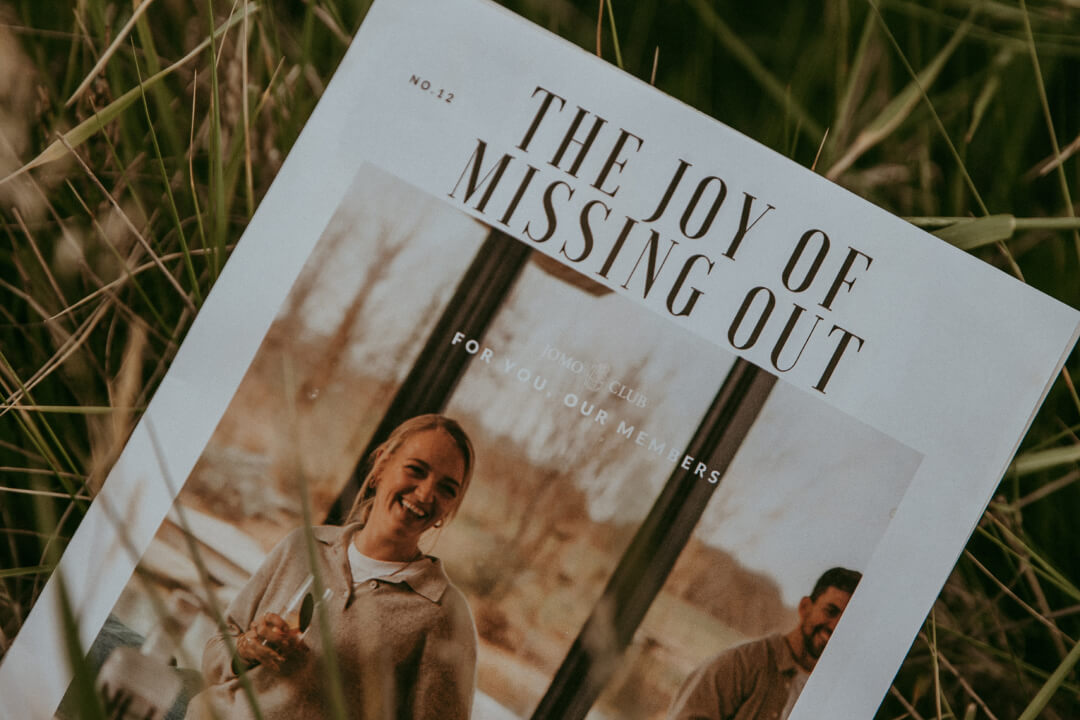
Business
8th January 2024
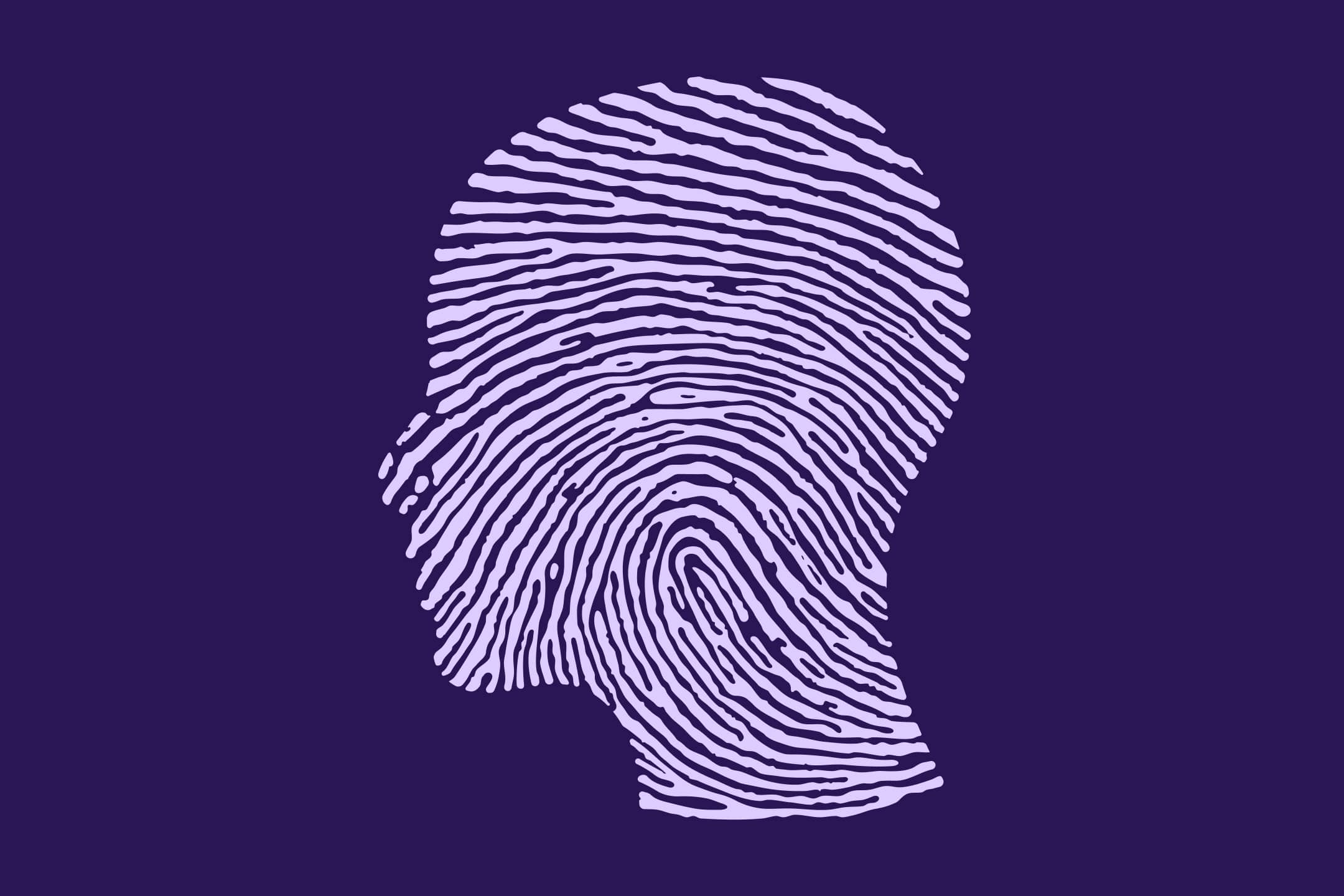
Fraud
1st November 2024
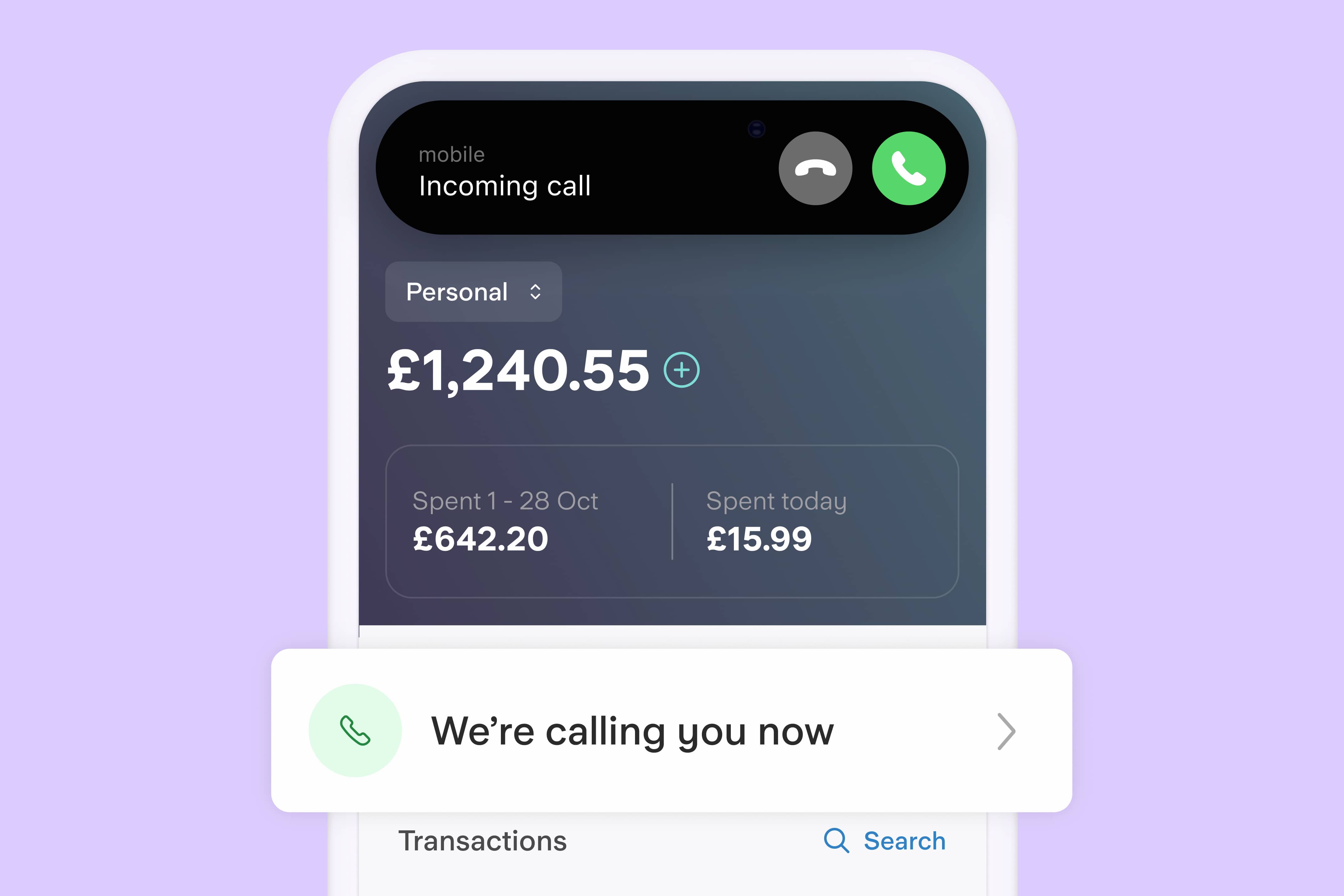
Fraud
1st November 2024
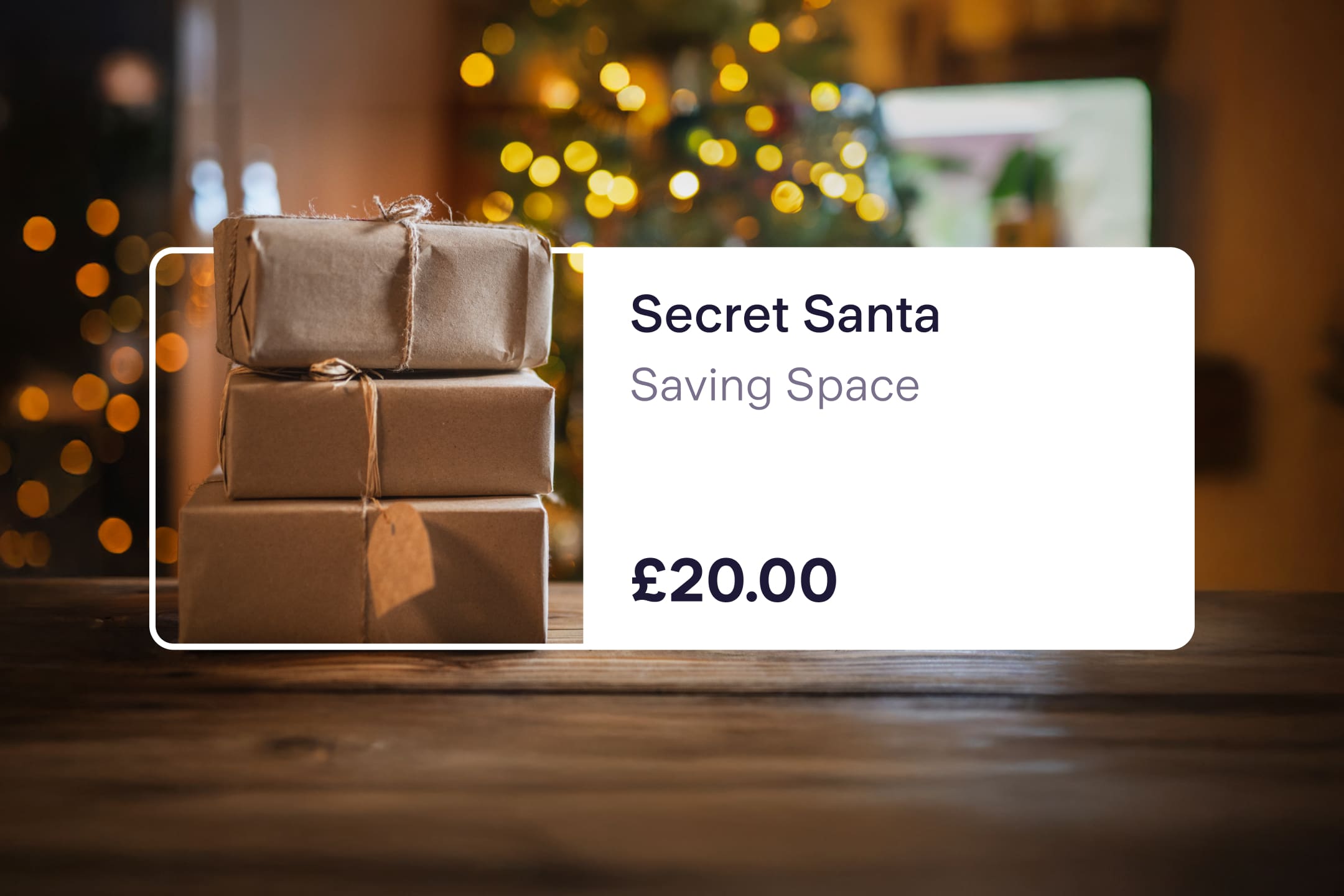
Money Masters
15th October 2024